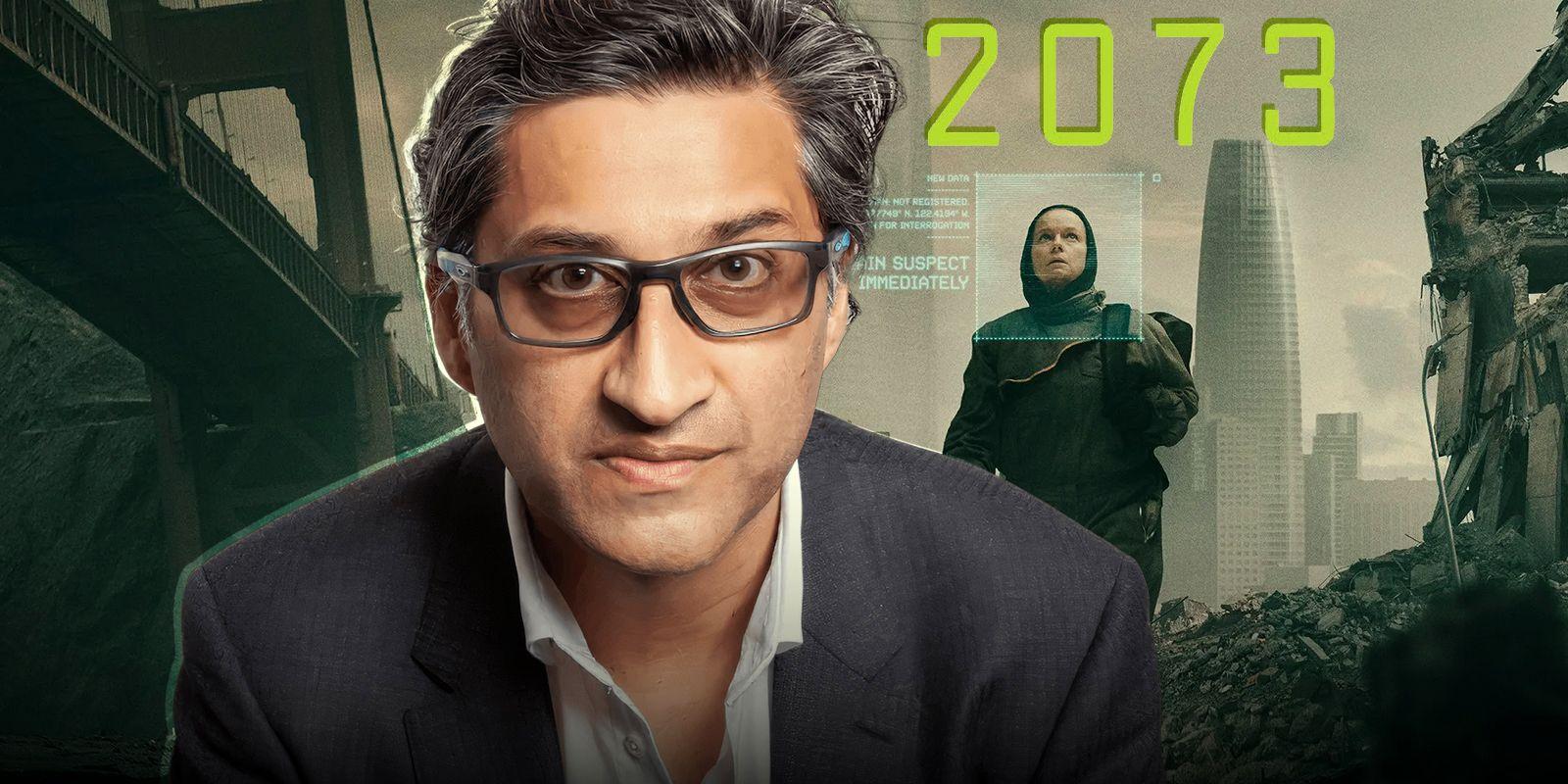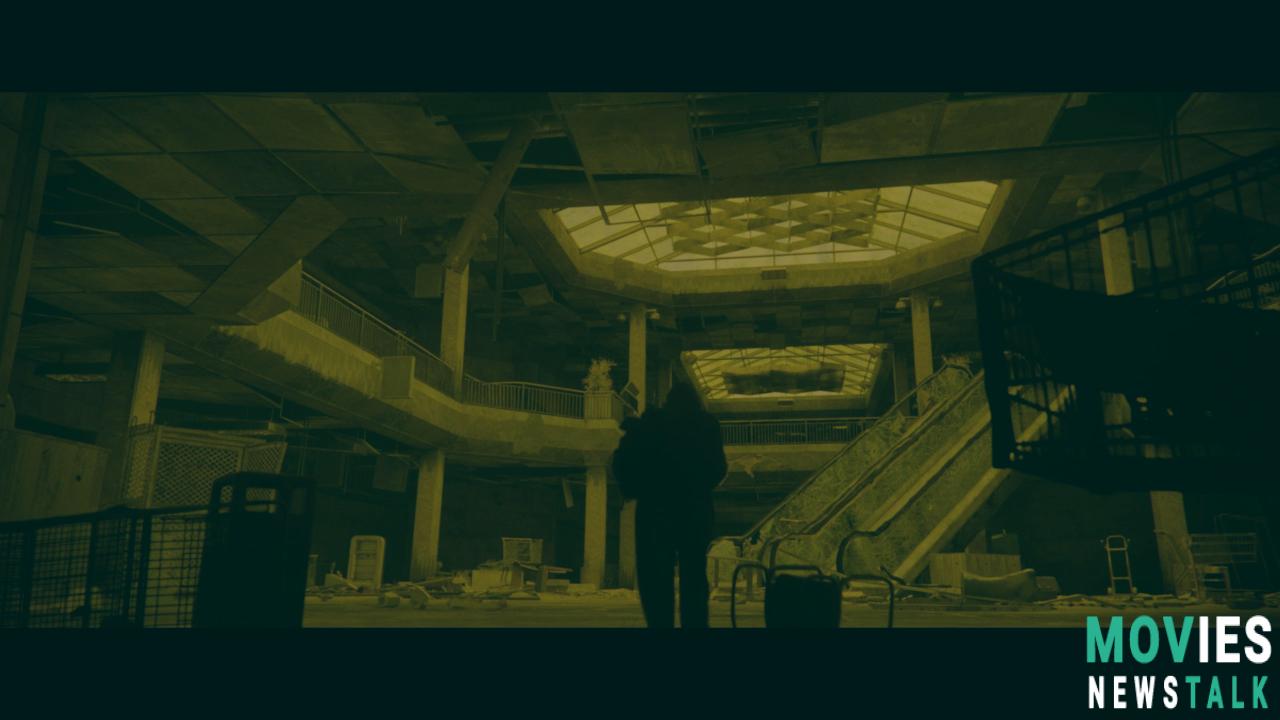Asif Kapadia’s new documentary titled “ 2073 ” presents Ivanka Trump as leader of a police state 30 years in the future where America has fallen into a fascist authoritarian regime. The film is an unusual docudrama mixing news footage interviews from journalists and a fictional story starring Samatha Morton to explore a terrifying yet plausible dystopia. 2073 also takes inspiration from Chris Marker’s 1962 featurette “La Jetée”.
'2073' Explores A Near-Future Dystopia Blending Realities Of Authoritarian Control and Climate Change
Samantha Morton in 2073 acts as a survivor of a future global collapse linked to AI climate change authoritarian control and technocratic surveillance in the film. She navigates a nightmarish police state lead by an ultra-right wing government. Asif Kapadia wanted to convey his deep worry using an unexpected genre that attracts audiences. This narrative is set in what many might consider a post-apocalyptic world due to the devastating changes which occur over time. The movie merges these various threats to portray the main message to movie viewers .
Real-World Leaders and Global Issues Provide a Basis For The Terrifying Scenarios Shown In '2073'

The movie also highlights world leaders such as the Trump family the Murdoch family Vladimir Putin Benjamin Netanyahu Xi Jinping Mohammed Bin Salman Narendra Modi the Koch brothers Elon Musk Mark Zuckerberg Jeff Bezos and Peter Thiel by using footage from 60 different countries. The opening scenes of the documentary juxtapose recent clips of devastation from Gaza to display a large world shifting catastrophe. Director Asif Kapadia wanted to highlight global political trends. He uses shocking events as part of real facts from real political powers who hold these positions in real time in present day.
Kapadia's Intentional Hybrid Sci-Fi Approach in '2073' to Provoke Audiences and Inspire Action
Kapadia mentions he deliberately chose to use horror for 2073 to draw in an audience that would typically avoid documentaries. His intention as director was always for films to function for large cinema experiences much like “Senna” and “Amy” where people set down distractions and really engage with subject matter in full focus as much as possible. This hybrid film was released on December 27th through Neon Double Agent and Film4 which originally premiered at Venice Film Festival during the previous September period. Director Asif Kapadia received Best Feature Documentary Oscar for Amy during the year 2016 showing his pedigree for doc style filmmaking and storytelling within that category of production.
Creative Choices and Rejection of Fiction for Realistic Portrayal in Kapadia's '2073'
Kapadia addresses issues when using only fictional story lines and felt fiction films would become too quickly out-dated after production process. He instead took advantage of all the footage now available. Making it a hybrid format, also allowed greater creative control for this project using his team and a smaller budget along with minimal studio interference as well as faster production pace. Kapadia also highlights a tendency within movie industry of heavy notes screenplay development cycles for fiction format films and that he wanted to avoid such slow pacing while sharing a relevant perspective and creative insights.
Kapadia's Film '2073' Aims to Shock Audiences With A Clear Goal To Influence Change in World
Kapadia states "if people are comfortable nothing will change" explaining the need for worry and change for greater movement among current events. Director Kapadia wanted viewers to feel uncomfortable enough with information to inspire action. The film serves a message of urgent need for global action highlighting a "boiling frog" analogy demonstrating the worsening status of the planet with multiple threats affecting current world issues. The film calls audience to actively look into books or articles or research by journalists in their local communities for better information regarding threats around global change. Kapadia used powerful images along with his story telling abilities to promote his points directly to an audience who will soon be entering a post apocalyptic styled society which he shows directly.
Influence from Chris Marker's La Jetée and Time Travel Themes in Kapadia's Hybrid Documentary
Asif Kapadia explains Chris Marker’s film La Jetée served as a primary inspiration to the structure of his film 2073 as La Jetée itself uses time travel for the protagonist to risk everything to alter historical outcome. 2073 focuses on time and the future in his storytelling format similar to previous iterations using time travel shown in Christopher Nolan or Terminator titles from other years but specifically shows a specific point to highlight issues using present day and past footage. Kapadia used this creative license as inspiration for the format with archive footage serving the purpose similar to still frames of original project where many well known movie titles draw influence.
'Mindhunter' Connections: Kapadia's Observations of Political Divides While Shooting Show Episodes
Asif Kapadia has previous experience directing two Mindhunter episodes during a unique period while in Pittsburg Pennsylvania in 2016 as a swing state. The show shoot overlapped with the 2016 Trump and Clinton election period with strong political divides between staff on set. This direct insight into how people respond emotionally to events helped inspire future directing options with his current release. Kapadia had direct experience viewing how Trump's campaign directly mirrored messaging also during the Brexit movement and he has since added this into film. Kapadia shows his direct concerns and observation of such important events for more critical audience thinking.
'2073' Connects Global Issues and Promotes Collective Action and Discussion
Kapadia hopes that the 2073 movie shows connectivity between varied global problems to an audience who will then act to fix those issues in local levels. The movie is meant to foster talking about difficult subjects using a medium that presents ideas and feelings openly in public so people realize problems happening everywhere. This direct approach has allowed for Kapadia to be heard by more moviegoers due to the creative decisions in the way he choose to deliver the final presentation. Director Asif Kapadia highlights his hope that journalism from trusted news organizations will provide the public solutions when searching for options for local action as they strive to change outcomes for the betterment of all humanity in time before its too late.
Dystopian Vision of "New San Francisco" Showcases Authoritarian Police State in Kapadia's 2073
The film "2073" will explore a dystopian future with a primary focus on "New San Francisco" that is represented by an ultra-modern tech driven police state. The location portrays the collapse of democracy with the removal of any idea of personal liberties. The movie which draws direct influence from Chris Marker’s "La Jetée" tells a terrifying society where control is complete in all facets and is combined with a scorched earth effect to heighten a sense of desolation and despair. Kapadia wanted to create a scenario that forces viewers to question current political landscape and use critical thinking when going forward.

